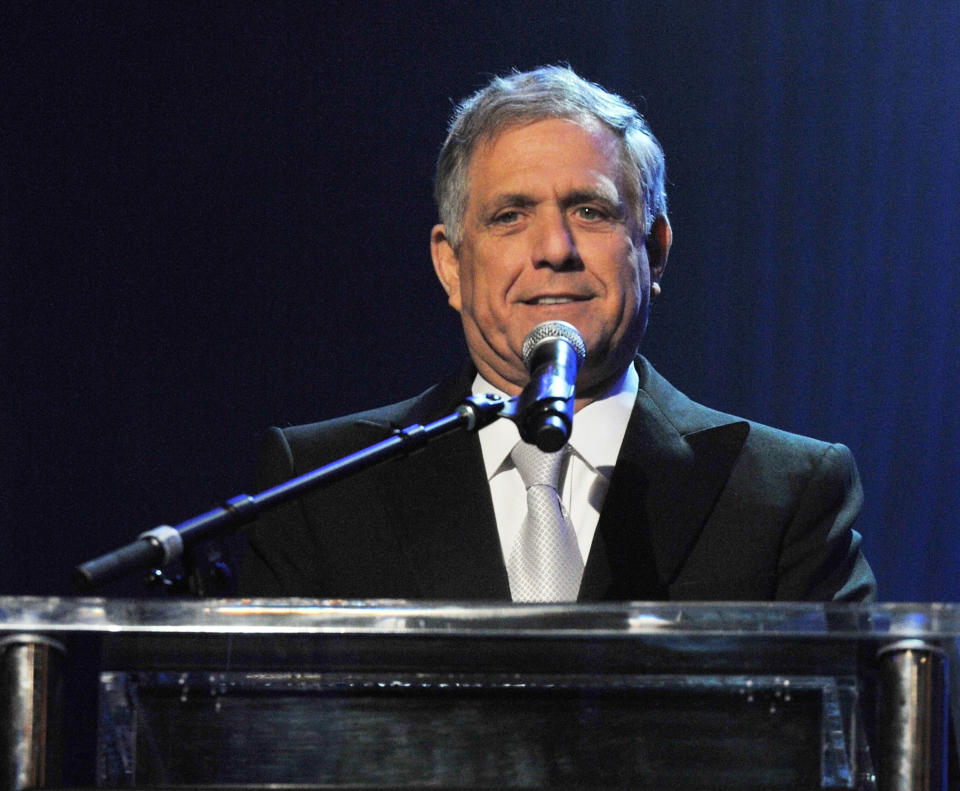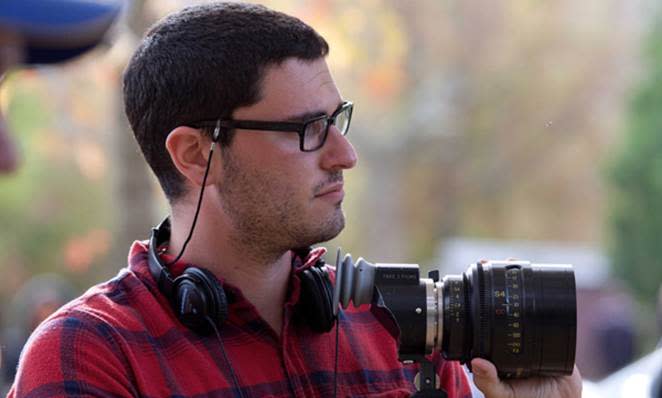Bart & Fleming: Why Does The Press Keep Lathering Ryan Kavanaugh’s Bum After Relativity Wreckage?

Peter Bart and Mike Fleming Jr. worked together for two decades at Daily Variety. In this weekly column, two old friends get together and grind their axes, mostly on the movie business.
FLEMING: I feel the need to start off with Ryan Kavanaugh. Has a snake oil salesman been treated as lovingly by the press as this guy? I read THR’s long interview with Kavanaugh where he takes zero responsibility for years of futility, failing to the point where his outstanding debts are more than twice what his company’s worth. The Wrap’s Sharon Waxman invites us to mourn the loss of a great studio. WTF? What am I missing? Now, I’ll admit Kavanaugh is personable with a puppy dog-like affability, but is that enough to get him better press than someone like Mike Ovitz when he went down? Even you have a column coming up in Variety where you explain that you like Kavanaugh and feel sympathy. Please explain.
BART: My column doesn’t empathize with Kavanaugh, but it explains why his personality type is far from unique in Hollywood. In fact, career sociopaths like Ryan Kavanaugh have always occupied an important niche in the entertainment industry. Hustlers and promoters give the business its energy and excitement. Most confine their lies to tame topics — “Ben Affleck loves the script” (he’s never read it), “Paramount has green lit the picture “(it turned it down), “the movie can be shot for $60 million below the line” (the real budget says $90 million). Ryan Kavanaugh takes the Big Lie further. He’ll promise that his company is poised to show a giant profit. That it will be the basis for a new global conglomerate. Well, not really.

FLEMING
: Our former Variety colleague Tatiana Siegel did the THR interview and she asked some good questions, even about some of the wonky equity investment scoops he gave her that ended up not helping his cause. Consider this rant my opinion, informed by top agents and people who play in the same financial sandbox as Kavanaugh. If you dissect this story, it allows Kavanaugh to lay blame on everyone but himself for historic futility. Kavanaugh blames all his troubles on the Colbeck Capital guys and a conspiracy to wrest control of his company and plant nasty stories in the New York Post, and dissuaded other potential investors. This comes off as a smokescreen and maybe those future investors were dissuaded by the now indisputable fact that he piled up north of $1 billion in debt, twice as much as the value of his assets, making a lie out of past boasts (like one in THR a couple years ago that refuted a New Yorker story that Ron Burkle was in control, where Kavanaugh said his company was profitable and that 85% of its films made money). In fact, Kavanaugh finally ran out of lenders willing to pile more loans on top of a mountain of debt. You look at NBCUniversal and Elliott Management joining the creditor committee and it appears nobody got out clean, even though NBCUniversal sold him its genre business Rogue Pictures to get it off its books years ago. Kavanaugh discloses he doesn’t drive a Ferrari, but rather a pickup truck (when not helicopter commuting or flying on a private plane Kavanaugh said he personally pays for, something to watch if his business is really scrutinized in bankruptcy and whether trips were charged to the business and the budgets of films) and that his wife drove a Jeep Wrangler (a NY Post story said that as Relativity fell into Chapter 11, she posted and quickly removed an Instagram photo of herself with the Mercedes Kavanaugh had just purchased for her). Kavanaugh wonders why nobody questions the lavish lifestyles lived by Les Moonves (because, Kavanaugh claims, Relativity outperforms CBS Films), Rupert Murdoch or Jeff Skoll. Kavanaugh acknowledges he might have leased Mazeratis for his CFO and others, but hey, Warner Bros gave Zack Snyder an Aston Martin after 300. Kavanaugh conveys he might be getting scrutinized because of his devotion to Jewish causes and for writing a piece slamming President Obama’s nuclear deal with Iran: “I couldn’t believe they even questioned that — the fact that I [took] 10 minutes out of my day to say I believe the fabric of America is at risk? You don’t have to believe me, but let’s assume that maybe there is a 2 percent chance I’m right, shouldn’t I be writing that and not be selfishly focusing just on my company?

So a couple things here, Peter. A major movie and TV company going bankrupt is not good for the fabric of America. The difference between Kavanaugh and Moonves, Murdoch, Skoll and the management of Warner Bros that gave Snyder a car, is this: those others actually got backers to bet on them, and they responded by building billion dollar businesses and shareholder value. He’s marginalizing Moonves for CBS Films, when Les built billion dollar winners at Warner Bros TV and then CBS? What, by comparison, has Kavanaugh achieved to warrant comparison to these towering success stories and why does his head financial guy deserve a Mazerati when they’ve all driven the company’s finances off the road like this? Kavanaugh has now failed three times with ventures that turned investors into creditors, aided by continuing glowing press about how he was smarter than everybody else and was going to change the movie business. Just recently he labeled a spate of negative stories anticipating bankruptcy a “witch hunt,” claiming he was working with patient creditors to raise new money. Days later, Chapter 11. I’ve talked to top agents in Hollywood, and numerous finance guys, after that THR piece. Despite an array of photos in THR with stars and boasts that Leonardo DiCaprio, Bradley Cooper, Gerard Butler, Ron Meyer and others are soul mates, here are the words these agents and finance guys used to describe Kavanaugh, particularly after they read this spectacularly self-serving interview: “Repugnant.” “Ponzi.” Said one: “He has given a bad name to any serious person trying to raise money to build a company that will return value to those investors and he has consolidated the viewpoint the financial community has that film production is a terrible investment, and Hollywood is full of hucksters.” Another: “If there is any other option, I would not put a client in a movie with his company, but that’s nothing new.” (A spokesman for Kavanaugh said he didn’t say in THR that he leased a Mazerati for his CFO. The spokesman said Kavanaugh did it for other senior executives but not the CFO.)
BART: I ‘get’ your righteous indignation, Mike, but I think you’re ignoring the most interesting question about Relativity: Namely, why did all these rich and important guys invest in it? I’ve been asked that question regularly over the past couple of years by the power players at the major studios. They’ve looked on in disbelief as Kavanaugh kept finding new investors.
So let’s ask the nasty question: Why do rich guys invest in movies? First and foremost, because movies are fun. Ron Burkle, a major Kavanaugh backer, made his big money through grocery stores. The grocery business is boring. A hedge fund mogul like William Ackman bet billions of dollars last week on Oreos and chewing gum. That’s really boring. It’s more fun to take meetings about Brad and Angelina than to sit around projecting profits on Oreos. Second reason: By backing movies, the boring rich guys have a chance to meet girls. Hustlers in the movie business all throw great parties. And I’ve always been amazed (and bemused) at how hungry Wall Streeters are for pretty girls. The third reason relates to greed: If you add up (and distort) the numbers the right way, movies look like great profit generators. Glance at the box office returns in China or Brazil and you figure it’s a no lose game. With tax breaks tossed in. Until you study the real numbers.
So it’s fine to rake Kavanaugh over the coals, Mike, but I’d ask you to ask yourself this: Why did so many people trust him to begin with.?

FLEMING
: Don’t slow my roll here, big guy. There has to be accountability. Someone has to own this. He calls Chapter 11 a “hiccup,” indicating he’ll raise more money and bid on these assets when they come to bankruptcy auction, now that they will be unburdened by the debt he piled up and that choked Relativity. How does a small film and TV company fail so badly? Adding pieces like fashion and sports to make a healthy-looking hodgepodge for that IPO that now won’t come? These people I spoke with didn’t want to be named, but they know the deal and they note that Kavanaugh failed in an early venture capital firm (did it lose $400 million?), futility pegged to the post 9/11 downturn (others note that many companies survived 9/11 and maybe Kavanaugh made bad bets on things like dot coms). There was his studio slate financing business staked by Elliott Management that left that backer desperate to get rid of him even though he spread risk by betting on films at both Universal and Sony. Nearly every other slate financing arrangement with a major studio in that time was a winner and is still considered the safest Hollywood investment; Kavanaugh received fees and gross, but couldn’t deliver enough winners to prevent him from falling out with his backer. He then changed his focus on building Relativity into a company Kavanaugh said would change the movie making model, with algorithms and research that would allow him to target niche audiences with smaller investments in marketing, with talent benefiting on the back end. When was his last real hit, 2011? In THR, he actually says he regrets not paying enough attention to the making and marketing of his movies since 2012. Where was his attention the last three years? That’s a CEO?
BART: The Ryan Kavanaugh story could be titled Diary of a Teenage Boy. Because, like most teens, he had this curious sense of invincibility. He felt nothing could take him down. Most of us learn to shed that invincible illusion as we get older. We become keenly aware of our vulnerability. Even Bernie Madoff felt vulnerable. That’s why he put out phony numbers to his investors each month – completely invented reports of vast profits. Kavanaugh, by contrast, didn’t even bother inventing numbers; he just kept making deals and throwing parties. As with Madoff, however, the folks I empathize with are the “little” victims — the below-the-line talent who will never see their fees, the caterers and the grips and the actors. The other victims: Those serious filmmakers who are out there trying to raise funding for their films. Kavanaugh has made their quest a lot more difficult.

FLEMING
: I don’t know what kind of assertions he made to investors, but if you look back at Kavanaugh’s boasts in THR and other press, the truth factor isn’t high, from expansion in China and on and on. To put the cherry on the sundae, Kavanaugh says in THR that this Chapter 11 is a “hiccup,” and that he will mobilize investors to bid for assets that will allow him to shed that crushing debt. Isn’t that an insult to all the creditors who’ll get pennies on the dollar if this guy moves along to the next group of suckers who fall for his charm? How in the world must this make the creditors feel, including the vendor he is now trying to “sanction” for having the audacity to call him a con man in litigation? Peter, we mentioned Mike Ovitz here, this steely Tai Chi master who got none of this empathy when he failed at AMG, this after many journalists carried his spin when he was Hollywood’s most powerful man. He might not be as huggable as Kavanaugh, but Ovitz built a world class talent agency in CAA that remains dominant, and I must say that the only reason to lump him in with Kavanaugh is that this THR interview is reminiscent of the meltdown interview Ovitz gave to Vanity Fair when he blamed the “Velvet Mafia” for his troubles. Why is it that nobody ever owns their failure when they sh*t the bed?
BART: Whoa, Mike. I’m glad you got that out of your system, but we’re well into August and maybe it’s time to lighten up for a moment. It’s increasingly hard to predict where the best “show biz” moments will come from — Trumped-up tantrums from Fox News, the very “long goodbye” from Jon Stewart, or even the petulant back-and-forths on the web over the cut of that wobbly tentpole, Fantastic Four. Even the titles of the new films are disorienting. I was not eager to see a film titled Diary of a Teenage Girl, but I looked forward to the rock ‘n roll movie titled Ricki and the Flash. So Diary turns out to be terrific and Ricki utterly pedestrian, Meryl Streep notwithstanding. Whatever happened to the knife-like wit of Diablo Cody evident in Juno ten years ago? (She wrote the flaccid Ricki script). For that matter, what happened to her first directing debut, Paradise, which disappeared last year? To be sure, lots of movies these days seem to disappear: Can anyone find True Story, the Jonah Hill-James Franco thriller about a newspaper reporter who is suckered into a bum story? Given the exotic backing of Fox Searchlight, Regency and Brad Pitt’s Plan B, you wonder who pulled the plug that fast?
FLEMING: One more point before I move off Kavanaugh. Early in my career, you sent me to interview Dino De Laurentiis, as his DEG was failing. This charming man invited me to rub the balls (for luck) of that bull statue he had in his office (Dino did that all the time), and he offered me script writing assignments. And I came back and despite falling in love with this storied man, I hit him pretty hard. He stopped doing interviews for a long time after and they were very upset with me. Later, we rekindled as he had a resurgence. I always liked this guy, and felt bad when he passed away. But I didn’t regret acting like a journalist and holding him accountable for failure. Dino won Oscars and he is remembered as one of the Hollywood greats as is the late Jerry Weintraub, who also had a company go under. I just don’t see that any of these heights were ever reached by Kavanaugh. Journalists today should keep all that in mind. There’s a part of me that still wants to believe what people say, but I am trying to fight that weakness here.

Okay, onto Trank. After this Fantastic Four debacle, will we refer to the failure of any bad superhero movie as “Tranking,” since his attempt to distance himself from his movie with a Twitter post cemented his tie to one of the few recent superhero movies to “Trank” both with critics and at the box office? This young filmmaker directed the smart sleeper Chronicle and then won the assignment for Fantastic Four with four of the brightest young actors in Hollywood, and then Star Wars. Talk about hitting the lottery! Then the bad rumors spread about FF4 and suddenly Trank was dropped from Star Wars. This kid needs to go back and do something small and distinctive, or his career will be as dead as disco. As for Cody, she had this great backstory: stripper writes a blog, gets discovered and wins the Oscar writing Juno. But maybe she just isn’t going to soar higher than that. It still puts her in rare company, and she has my admiration. I remember when Daniel Waters wrote Heathers, which brought the same kind of unique voice Juno had. Did he top that? No. But how many writers reach that kind of cult status, or write one script in their lives that good? Not many. I look at how those around Harper Lee whored out her legacy by cashing in with Go Set A Watchman. There was no way anybody was acting in the best interests of the author, who by all accounts has lived comfortably off To Kill A Mockingbird. Others can’t live on past accomplishments like that. They’ve got to keep working and it must be crushing to have to try and live down an early failure as live up to an early success. Christopher McQuarrie said in our Deadline interview how much a burden winning the Oscar for his The Usual Suspects script brought him so early in his career because of the expectations, but he kept at it and certainly distinguished himself with Mission: Impossible Rogue Nation, which is about to win its second weekend in a row at the box office.
BART: I sympathize with Josh Trank, who took a beating on Fantastic Four and dropped out of a Star Wars spinoff (or was he removed?) to find something “low profile.” The upside is that while tent poles disappear in a mushroom cloud, the small films simply vanish without a trace.
Related stories
Get more from Deadline.com: Follow us on Twitter, Facebook, Newsletter

